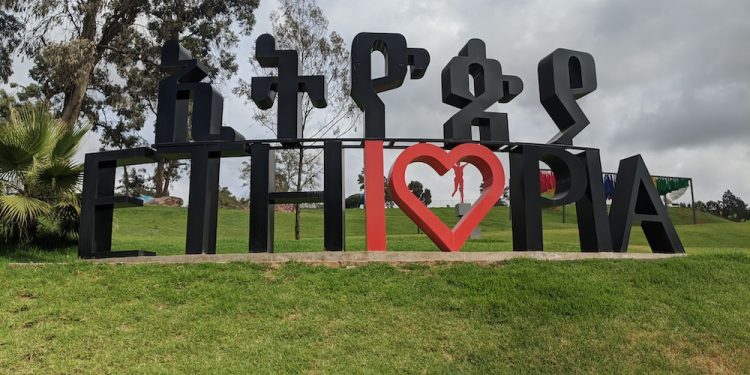Earlier this week, Kenya’s CS for the East African Community (EAC), Arid and Semi-Arid Lands Penina Malonza stated that Ethiopia will soon be joining the regional bloc – a development Ethiopia’s spokesman at the Ministry of Foreign Affairs Nebiu Tedla later told reporters “[t]he information is baseless”.
- CS Malonza made the remarks during a speech at a food relief drive in Kitui Central Constituency where she announced that discussions between the EAC and Ethiopia are entering the late stage.
- On Monday April 8th, Kenya’s state broadcaster KBC and many others published articles based on the CS’s statements.
- On April 9th, the Amharic version of the BBC published an article quoting the spokesman of Ethiopia’s Ministry of Foreign Affairs contesting the narrative that Ethiopia had applied for EAC membership.
While multiple reports and sources have been cited discussing Ethiopia’s potential admittance to the EAC, Ethiopia’s Ministry of Foreign Affairs reiterates that no formal petition has been submitted.
“We do not know what the individual based the information on. We as a country have not made any request to join the organization. There is no document that we have exchanged,” stated Ministry of Foreign Affairs spokesperson, Nebiu Tedla.
The Kenyan Wall Street has reached out to the EAC for comment and intends to update this story on Ethiopia’s probable ascension to the regional bloc.
Why Ethiopia Matters for the EAC
However, conversation about Ethiopia’s potential admittance into the EAC is not new. The move would be well in lines with the recent goals of the bloc which include expanding membership and eventually establishing a single currency, highlighted in the EAC Monetary Union Protocol. Ethiopia, Eritrea, and Djibouti have all been touted as potential new members after the latest wave saw the DRC and Somalia join the bloc.
If or when Ethiopia decides to formally apply for membership into the EAC, it is reasonable to expect some drama, particularly with its neighbor and most recent member of the bloc, Somalia.
Ethiopia’s 100 million-strong population and ongoing market reforms, which have seen the country open up sectors of the economy and lay groundwork for a stock market, make it a significant target for EAC membership.
The Geopolitics
Ethiopia is a BRICS country and its admission into the bloc would then make the EAC, (in addition to SADC) regional African associations with members in BRICS – the global community responsible for 32% of the world’s GDP.
But there are other potential issues, especially given Ethiopia’s security situation with multiple overlapping conflicts. Article 3 of the EAC Treaty delves into the criteria to join the bloc including, “adherence to universally acceptable principles of good governance, democracy, the rule of law, observance of human rights and social justice.” Scholars at the Institute for Security Studies and others have previously raised alarm about whether Somalia (and other potential new states) would reasonably adhere to these principles.
Article 89 of the EAC Treaty discusses Common Transport and Communication Policies. Subsection E states, “…grant special treatment to land-locked Partner States in respect of the application of the provisions of this Chapter.” This could be a point of contention by Somalia given the member country’s recent disagreement with Ethiopia over use of the Berbera Port in the breakaway state of Somaliland, and Addis’ lasting interest in accessing the sea.
In a statement to The Kenyan Wall Street, geopolitical strategist Andrew Franklin stated, “For a country to join the EAC, there must be a unanimous consensus by member states. I do not foresee Somalia supporting Ethiopia because there is little for Somalia and the entire EAC to gain from it beyond further complicating the relationship between Mogadishu and Addis Ababa.”




